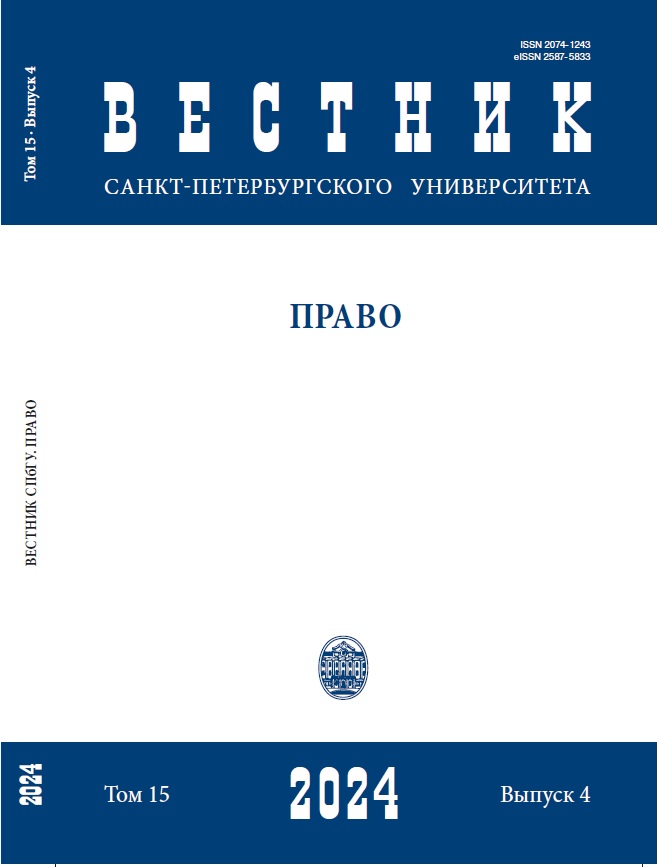Operational control in the system of state control (supervision): Implementation problems and ways to improve efficiency
DOI:
https://doi.org/10.21638/spbu14.2024.404Abstract
The article analyses the regulatory and legal framework for operational control carried out by tax authorities to ensure compliance with the obligation to use cash registers, in the context of the introduction of this type of control into the sphere of state control legislation. Based on practical experience, the author identifies problems in law enforcement and states a decrease in the effectiveness of operational control within the context of a new legal framework characterized by an unmeasurable liberalization of legislation, including administrative offense legislation. The non-compliance with the principle of checks and balances within the design of legal norms has led to a decline in discipline, as confirmed by statistics from the Federal Tax Service of Russia. As a result, the tax authorities today lack the authority to respond promptly to violations (they cannot initiate an administrative offence case without a control event with a controlled person, even if they have evidence and mandatory prevention, and they cannot impose a warning for the first time, regardless of the damage). The reduced size of the sanctions raises questions about achieving the goal of administrative punishment. The author consistently points out logical inconsistencies in current legal regulations, as well as excessive bureaucratization of control procedures, which runs counter to the aims of the reform of control and supervision activities. He suggests ways to improve the effectiveness of operational controls, including specific amendments to Federal legislation. In addition, the article draws attention to the need to change the conceptual approach to operational control and incorporate it into the sphere of tax legislation regulation, which corresponds to its essential purpose — controlling the formation of a taxpayer’s tax basis through the use of cash registers. Hence, operational control is a state tool for ensuring tax security, and appropriate legal regulations should address such a goal.
Keywords:
cash register equipment, operational control, tax security, moratorium on inspections, administrative responsibility, control (supervisory) event, control purchase
Downloads
References
Downloads
Published
How to Cite
Issue
Section
License
Articles of "Vestnik of Saint Petersburg University. Law" are open access distributed under the terms of the License Agreement with Saint Petersburg State University, which permits to the authors unrestricted distribution and self-archiving free of charge.






